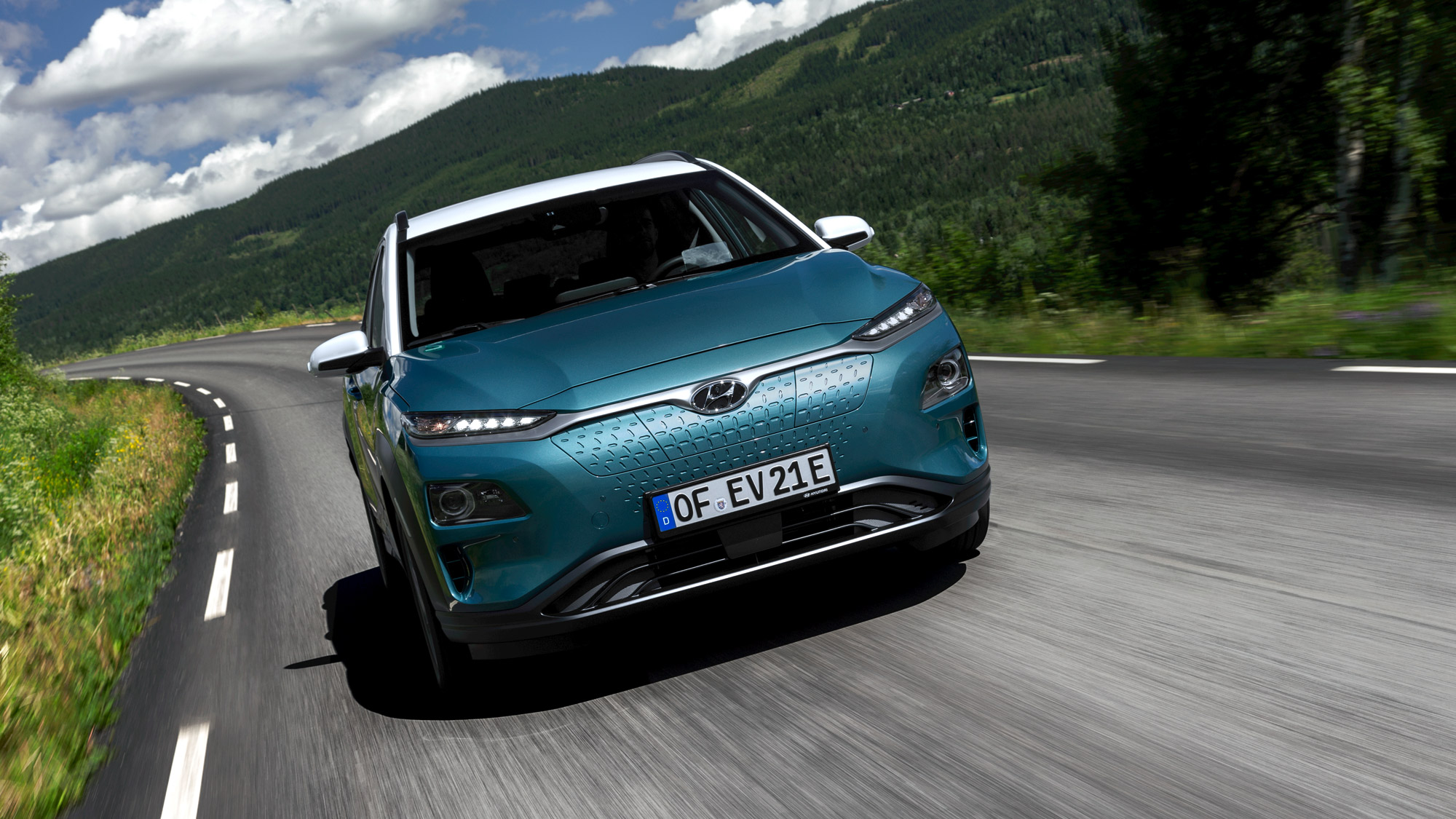Hyundai Will Replace Kona EV Batteries After All — At Least In South Korea: Report
Last month, it was reported that a Hyundai Kona Electric that had already been recalled and serviced for a potential battery defect in South Korea caught fire. The vehicle in question reportedly received new software, but Hyundai didn't deem full battery replacement necessary.
The Korea Transportation Safety Authority stepped in to investigate the matter further, and now it seems Hyundai is on the hook to replace batteries in more than 50,000 vehicles in the country, including not only the Kona Electric but also the Ioniq and some 230 electric buses, according to Electrek by way of multiple South Korean business news outlets. Hyundai has not yet officially confirmed this, however.
Originally, Hyundai was mandating only software fixes for the Kona Electric in South Korea, with battery replacement conducted on a case-by-case basis. Flashing new software has proven insufficient though, and now models other than the Kona have gone up in flames. Infostock Daily reported yesterday that one of Hyundai's Elec City buses recently burned down. And in previous months, 16 Kona Electric owners, some in other countries, have seen their vehicles suffer a similar charred fate.
We've reached out to Hyundai Motor America to determine if a similar battery replacement program is in the works for Kona EVs in the U.S. All 11,000 Kona EVs sold in the U.S. and Canada were recalled late last year, and Hyundai was forced to issue a stop-sale on 2020 models already on dealer lots, according to Green Car Reports.
The fires have been linked to manufacturing flaws by Hyundai's supplier, LG Energy Solution, rumored to pertain to the cell separator that keeps anodes and cathodes apart. This separator is failing to do its job, though, and when the electrodes on either side come in contact, a lot of heat is generated, which causes the battery to eventually ignite.
Hyundai isn't the only automaker that may have had to recall EVs due to LG's manufacturing woes. Chevrolet recalled almost 70,000 Bolts from model years 2017 through 2019 after five caught fire. In each case, the cars' batteries were fully charged. GM's initial patch for this was to issue a software update to limit the Bolt from recharging fully and instructing owners to do the same via the settings menu before they were able to bring their cars in for the recall.
Of course, limiting a battery's capacity has the undesirable side effect of reducing a vehicle's total range, which has put Bolt owners in a tough spot as they try to sell their cars.
Unsurprisingly, Hyundai and LG are reportedly quibbling over who should foot the majority of the bill for the replacement, with Electrek quoting an estimated total cost of $1.8 billion to service just those three models in South Korea. That's before you add Kona EVs sold elsewhere into the mix. Hyundai has also been rumored to replace LG's batteries with those from rival supplier SK.
